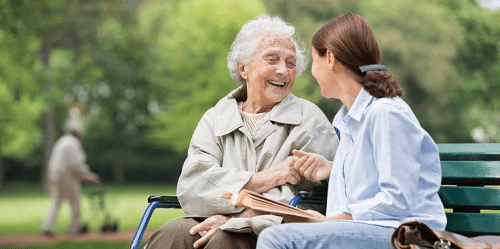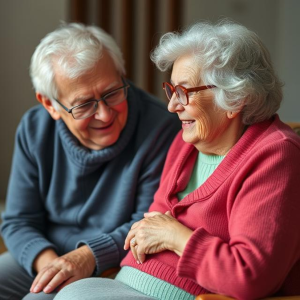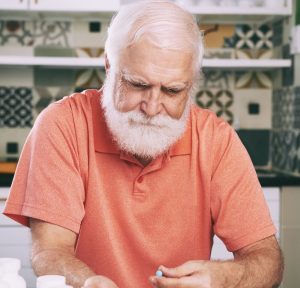Seniors are more likely to get sick or harmed by the heat. Because older adults do not sweat as much as younger ones do, which is the body’s most vital heat-regulating process, our bodies become less effective as we age at controlling temperature. Further complicating the body’s ability to regulate temperature is the way that older persons accumulate fat.
Since the body’s internal temperature rises along with the outside temperature in the summer, this can be problematic. In the summer, heat stroke affects elders more often than it does younger individuals.
Seniors, therefore, have health risks that need to be watched out for, especially during the summer’s heat. The following advice will help keep elders safe and healthy as summer temperatures rise.
1. Stay hydrated
To stay hydrated, drink eight glasses of water or fruit juice each day. Avoid drinking alcohol and caffeinated beverages like soda, coffee, and tea because they can cause rapid dehydration. If you are engaging in any physical activity or the weather is very hot, up your intake.
2. During periods of intense heat remain inside
Evaporation slows down in conditions of extreme heat & high humidity, and the body must do more effort to maintain a normal temperature. Remember that the sun is at its hottest between 10.00 am to 4.00 pm. Try to keep your outdoor activities to the morning and evening hours.
3. Put on appropriate clothing for the hot temperature
Dress appropriately when the temperature and humidity increase. Wear cotton, linen, lightweight, loose-fitting clothing, or other natural fibers. Avoid wearing synthetic textiles since they tend to hold moisture and heat on the skin. If you go into an air-conditioned area to escape the heat, have a lightweight wrap on hand.
4. Secure your skin from the sun’s heat
It’s normal to want to relax in the sunshine. However, be careful to use safety by covering yourself from dangerous UV rays that can damage your skin and enhance the risk of skin cancer. When you are outside, apply a broad-spectrum, water-resistant sunscreen with an SPF of 30 or higher every two hours. Avoid direct sun exposure during peak hours and wear a wide-brimmed hat to protect yourself from heatstroke (10 am to 3 pm).
5. Wearing eye protection
Your eyes may suffer from prolonged sun exposure. Always wear sunglasses with 100% UV protection when you’re outside in the sun. Choose the widest size you can to shield your eyes from the light from all directions.
6. Be careful with medications
Increased UV sensitivity can frequently be caused by medications. Limit your time outside as necessary, and check your prescription for any potential sun exposure side effects. Consult the prescribing doctor or your pharmacist if you have any questions or concerns.
7. Stay in an air-conditioned place
In hot and humid weather, air conditioning is important. If your home doesn’t have air conditioning, choose a place that does. A movie theater, a shopping center, a friend’s or relative’s house, or a community senior center are all suitable choices. During prolonged times of intense heat, you can get assistance seeking a local cooling center by contacting the local Area Agency on Aging.
8. Prepare your home for hot days
A broken air conditioning system is the ultimate last thing anyone wants in the summertime. Before the hot season starts, make sure to have your system inspected. If you don’t have central air, window units might help you combat humidity. Opening the windows in the early morning and late at night and using fans to move the cooler air around your indoor space is another strategy to keep it cool.
9. Take insect preventive actions
Insects like ticks, mosquitoes, fleas, and other pests are more than simply a bother, dangerous diseases like Lyme disease and the West Nile virus can be transmitted to people by them. Precautions can be taken by:
- The use of insect repellant.
- Wearing long sleeves and pants, especially when hiking, having a picnic, or going somewhere with a lot of tall grass.
- To avoid ticks, tuck your jeans into your socks or boots.
- Clearing standing water where mosquitoes commonly breed.
- When you reach home, check your entire body for ticks. Get immediate medical attention if you notice any.
10. Being Aware of the signs of heat-related health illnesses
You might get heat exhaustion if you’re sweating a lot, feel dizzy, have a quick heartbeat, have dry, flushed skin, or begin to have muscle cramps. Move to a cooler location, dunk clothes in cool water, and apply wet cloths or ice to the head, neck, armpits, and groin. Call for assistance immediately if you feel you or someone else in your group may be suffering from heatstroke.
As a loved one or caregiver, you can assist elders in surviving the heat by:
- Visiting two or more times daily.
- observing for symptoms of heat stroke or exhaustion.
- ensuring that they have access to cooling.
- helping them in reducing their solar exposure.
- ensuring they drink enough water to maintain normal body temperatures and hydration.
Using these tips allows you to enjoy a fun, healthy summer with lower chances of getting sick from the heat. Please contact us at any time if you have any queries concerning senior safety during the summer or are interested in our expert elder care support services.






